IATA has revealed it is developing a SAF registry that will enable airlines worldwide to buy sustainable aviation fuel regardless of where it is produced and have certainty they can claim the environmental benefits of the SAF they have purchased for regulatory compliance purposes. Due to be rolled out in the first quarter of 2025, the development of the registry is being supported in a pilot phase by 17 major airlines and airline group IAG, as well as the national authorities of six countries, aerospace manufacturers Airbus, Boeing and GE Aerospace, and fuel producer World Energy. IATA said the registry would help promote a global SAF market and accelerate uptake, which is required to meet a 1,000-fold increase in SAF production by 2050. It estimates SAF output of 0.5 million tonnes (Mt) in 2023, or a 0.2% share of global jet fuel consumption, which it forecasts will triple to 1.5 Mt (a 0.53% share) this year.
SAF is expected to account for up to 65% of the total carbon mitigation needed to achieve the sector’s net zero emissions by 2050 goal and the registry would help meet the needs of all stakeholders as part of the global ramp-up of SAF production, commented IATA’s Director General, Willie Walsh.
“Governments need a trusted system to track the quality and quantities of SAF used. SAF producers need to accurately account for what has been delivered and effectively decarbonised. Corporate customers must be able to transparently account for their Scope 3 emissions. And airlines must have certainty that they can claim the environmental benefits of the SAF they purchased,” he said.
Key and unique among the stakeholders involved with the project, points out the airline trade body, is the participation of the government civil aviation authorities of Brazil, Japan, Kazakhstan, Malaysia, Singapore and Switzerland. “Relevant authorities can swiftly validate and approve claims, update national emission inventories and align their actions with international standards, such as those set by ICAO,” it explained.
IATA assures its SAF Registry will be neutral with respect to regulations, types of SAF and any other specificities under relevant jurisdictions and frameworks, and, as the initiator, it is working with certification organisations and fuel producers to standardise data for efficient processing.
The registry will help airlines meet regulations such as ICAO’s CORSIA scheme and the EU ETS, as well as ensuring compliance with SAF mandates and providing transparency to authorities regarding emissions reductions. IATA said it would also ensure the sector’s agreed SAF accounting and reporting principles were adhered to, fully in alignment with international protocols and industry best practices, and provide safeguards against double counting and double claiming.
Marie Owens Thomsen, IATA’s SVP Sustainability and Chief Economist, said the registry would be run under independent governance to ensure its impartiality and robustness, and participation would be on a non-profit, cost-recovery basis. “We all understand that SAF is going to be more expensive than jet fuel so it is imperative we stop adding layers to existing costs,” she said. “We also want all airlines to be able to participate in this global market, without geographical restriction, and equally important, we want all SAF producers to be able to sell to all airlines.”
IATA has identified 140 publicly-announced SAF projects now in progress in 31 countries and involving over 100 producers, with a cumulative renewable fuel capacity of 51 Mt. Around 70% of the projects are in Europe and the Americas, reflecting conducive government policies to promote SAF. Although HEFA will continue to dominate SAF production, Europe is now driving diversification, acknowledges IATA, with more individual projects across broader technologies.
But, said Hemant Mistry, IATA’s Director of Energy Transition: “We are far from where we need to be and not enough progress is being made on feedstocks.”
He said there were ‘low hanging fruit’ solutions though to accelerate access to critical SAF quantities, at least in the near- to mid-term. SAF production in existing refineries could be swiftly expanded through co-processing, which is ASTM approved but currently has a blend limit of 5%, although there are moves to increase the limit to 30%. However, he added, co-processing should be seen as a transition facilitator and not as a goal in itself.
Another quick win would be to focus policy incentives on switching renewable diesel production to SAF as road transport demand reduces and shifts to alternative energies such as electrification.
“Policy is the make or break to ensure we will have adequate supplies of SAF,” Mistry told a briefing to journalists at the IATA AGM in Dubai.
IATA is forecasting global jet fuel consumption of 285 Mt in 2024, just below the 2019 pre-pandemic level of 288 Mt, generating CO2 emissions of around 900 Mt by the sector.
Following its announcement last year of a methodology to track industry progress towards its net zero emissions by 2050 target, IATA confirmed it is anticipating the launch of its TrackZero reporting platform in Q4 2024. IATA will aggregate and report annually inputs from its member airlines on an industry basis. Non-IATA member airlines are also encouraged to contribute data and participate in the reporting. Individual airlines may use the aggregate data of the TrackZero report to benchmark their progress towards decarbonisation.
Acting on non-CO2
With the spotlight increasingly focused on aviation’s non-CO2 climate impacts, in particular from contrails, IATA recently issued a report on the issue. While accepting the scientific consensus that contrails have an aggregated, averaged warming effect on the climate, it points out there is a low level of confidence on quantifying how warming they are.
“However, this is not an excuse not to act,” Alejandro Block, Manager, New Energy and Technologies, told the briefing. “We want to help this quantification and we have spent a year speaking to meteorologists, climate scientists, researchers and aircraft manufacturers. Everyone told us that more data was required, particularly around humidity.”
He said most scientific literature agreed that contrail predicting models were most sensitive to humidity, but the lack of data lowers the confidence on the accuracy of these models. IATA is now focusing on how to get more humidity data, he said, although only a very few aircraft were currently fitted with humidity sensors. This was not stopping airlines from acting, he pointed out, and a number were already involved in trials to understand contrail avoidance and running validation exercises to check the accuracy of contrail predictions.
“We believe that post 2030, we will be able to more reliably predict individual contrails and their warming impact,” said Block. “In the future, contrail management could also be further understood and integrated to include fuels like SAF and new energies.”
Data collection is also at the centre of a new EU regulation under the EU ETS that will require all airlines to participate in the monitoring, reporting and verification (MRV) of non-CO2 emissions from January 2025. While not opposing the MRV, IATA says the industry has concerns over the move and has made recommendations.
“Firstly, the MRV is not like the MRV for CO2 where you report fuel burn and this allows you to estimate CO2 emissions with high confidence,” said Block. “For non-CO2, airlines will be asked to report a lot of data, which will be put into a black box coupled with weather models and a non-CO2 effect will be estimated. This estimate will be wrong. How can we then use that to reduce emissions?
“Secondly, all scientific papers support more humidity data and also note the sensitivity of particulate matter emissions from engines. But no papers suggest that airlines reporting all the data required will actually result in more accurate non-CO2 baselines or mitigation.
“We are concerned that the focus could be driven away from CO2, where we have high confidence, and onto non-CO2, where we have low confidence. This is dangerous and could have severe climate consequences.”
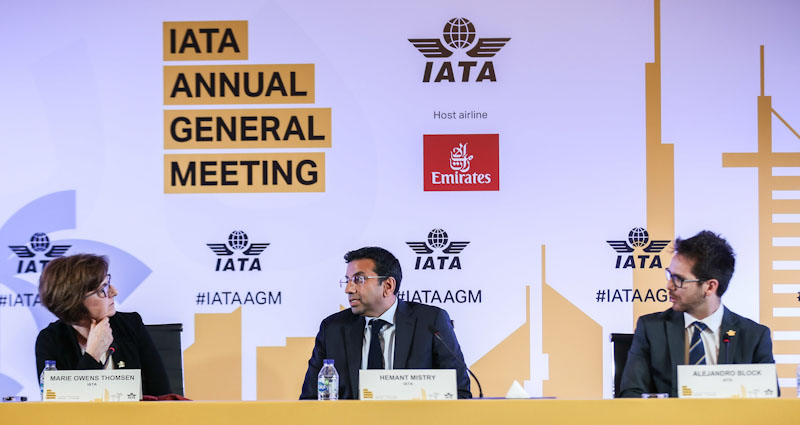
Above: IATA’s Marie Owens Thomsen, Hemant Mistry and Alejandro Block


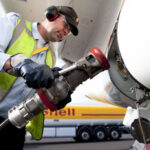


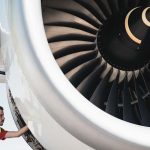


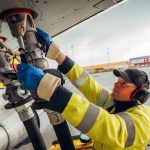
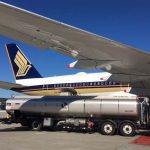



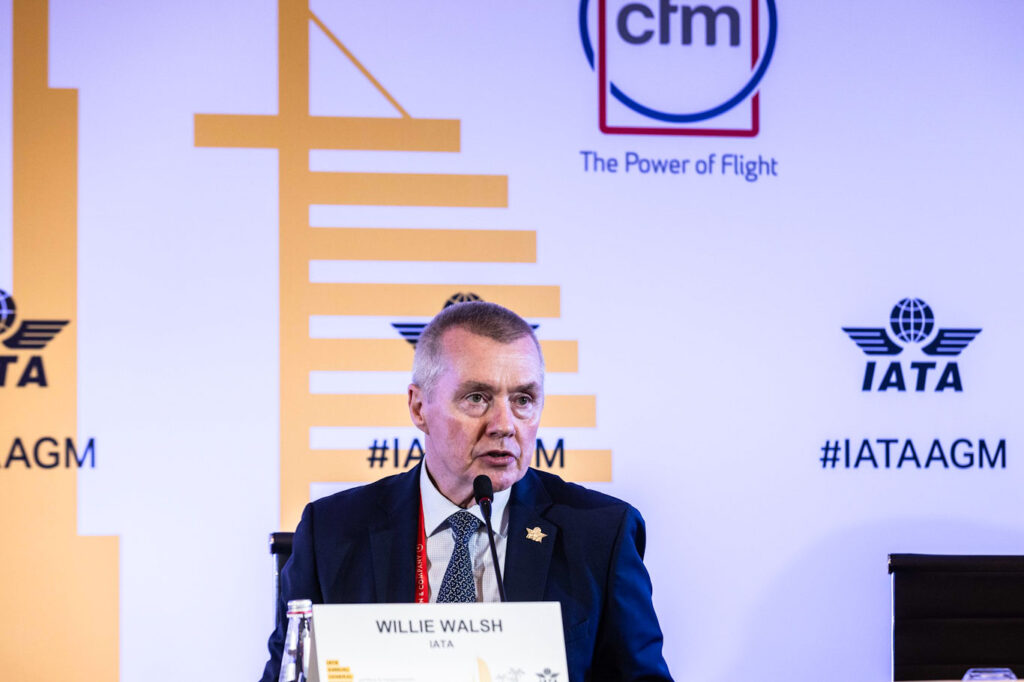


More News & Features
Lessons learned from the collapse of Fulcrum BioEnergy
Early data shows uncertainty that UK SAF mandate can be met in its first year
Swiss advanced SAF technology startups Metafuels and Synhelion reach project milestones
PtX fuels have significant Asia-Pacific potential but face many barriers, finds report
Airfreight giants DHL Express and FedEx announce big US SAF deals
Asia-Pacific study reveals pessimistic outlook for SAF uptake by 2030 as Singapore details levy